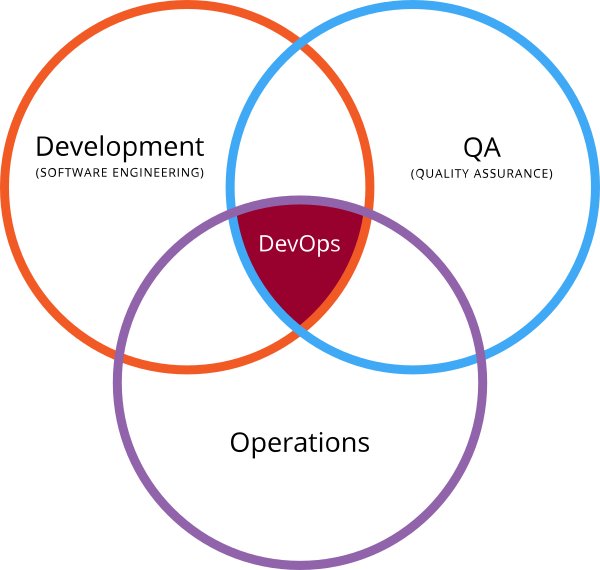A colleague of mine, who is another division-level IT manager, and I are teaching a course in the fall. The course is a senior level elective that focuses on special topics in technology management. Cool – right up our alley. We were given freedom to pick the topic, and of course we chose DevOps. You may have heard of it. It has become trendy is recent years, but I think it will prove to be more than a passing fad. You see, DevOps tries to solve problems, not primarily with technology, but rather with organizational functioning and communication.
The traditional definition of DevOps describes the intersection of communication and automation between IT development, operations and quality assurance. While these three areas are classically highlighted as the main areas of focus, in truth, DevOps is a set of principles for all of the IT disciplines. Recent sources have described DevOps as a philosophy for approaching IT work based upon four pillars; collaboration, affinity, tools, and scaling (cf. Davis & Daniels, 2016. Effective DevOps: Building a Culture of Collaboration, Affinity, and Tooling at Scale). More accurately, I think of DevOps as an organizational culture. Sure, part of DevOps is tools that enhance automation, communication, and collaboration. In fact, most people mistakenly talk about how to “do DevOps” and usually focus on tools. But what I find extremely useful is the push to break down organizational silos and embrace shared responsibility and authority across the organization.
Here’s the interesting part. As we have been trying to introduce DevOps into the work that we do here at the big school, we are finding that the organizational structure of a large Tier 1 University (or most any other higher education institution for that matter) is the antithesis of a DevOps culture. Higher education embraces vertical structures of organization and authority, delineated responsibility, demarcated services, territorial imbroglios, and finger-pointing when things go south. In IT, we see this among our IT organizations, between us and our customers, and even between organizations with a common purpose like academic colleges.
That is why I think DevOps is so important for Higher Ed IT. It gives us a framework to finally address some of the serious shortcomings of our environments in a way that will prove our worth to the academy. If we can only get over our historical cultures and shift our thinking, I think we can take Higher Ed IT to the next level using principles of DevOps.
